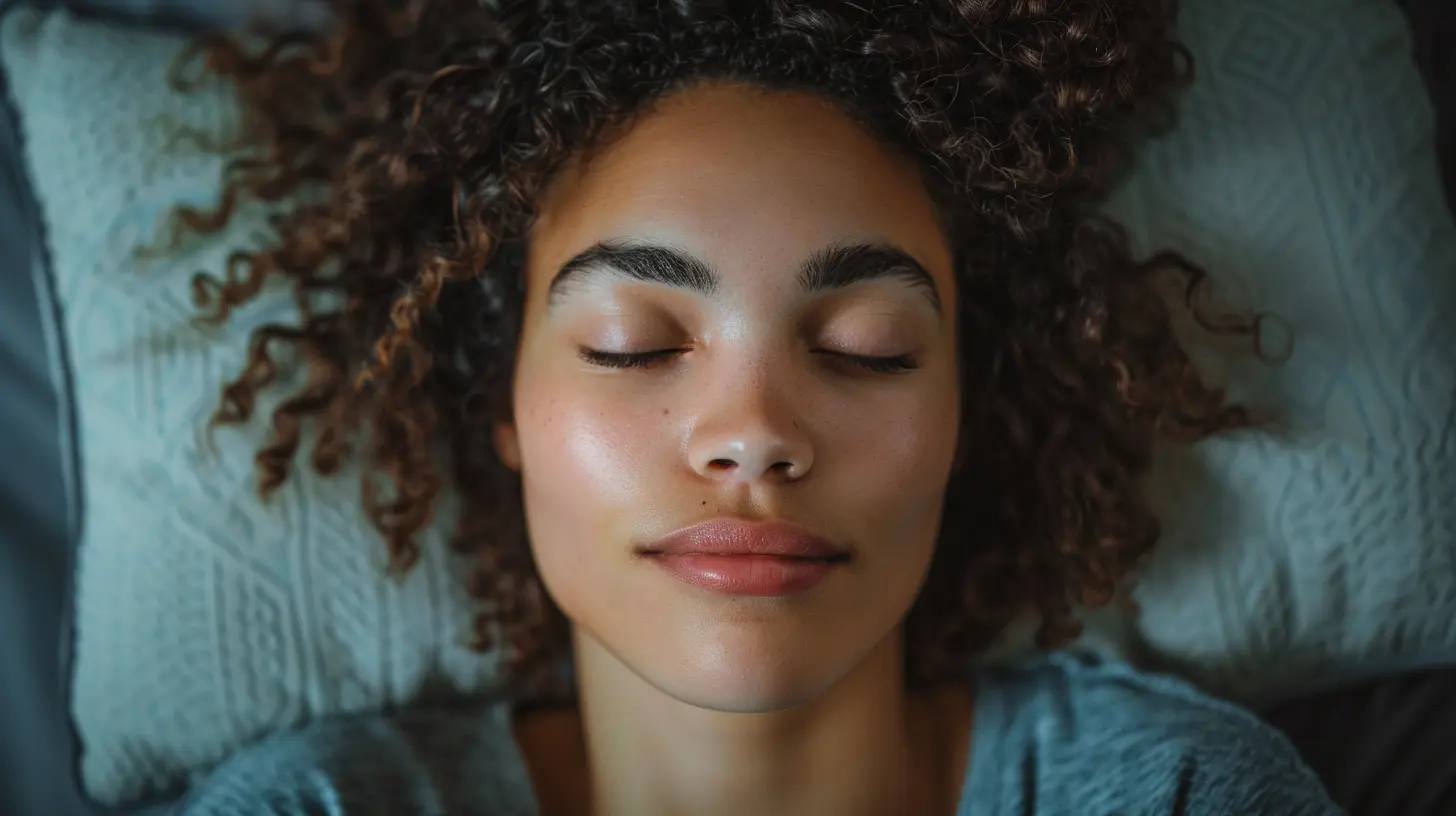The Connection Between Emotional Wellness and Sleep
11 October 2025
We all know how amazing it feels to wake up fully rested after a night of deep, uninterrupted sleep. But have you ever noticed how your mood takes a nosedive after a terrible night's rest? It's no coincidence—your emotional well-being and sleep are intricately linked, like best friends who can't function without each other.
If you've been feeling extra cranky, stressed, or just emotionally drained, your sleep (or lack thereof) might be the culprit. So, let's dive into this fascinating relationship between emotional wellness and sleep, and why prioritizing both is non-negotiable for a happy and healthy life.

Why Sleep and Emotional Wellness Are a Power Couple
Think of sleep and emotional well-being as peanut butter and jelly—they just go together. When you get quality sleep, your brain processes emotions better, helping you stay balanced and resilient. On the flip side, poor sleep can turn you into an emotional rollercoaster, making even the tiniest inconvenience feel like the end of the world.The Science Behind Sleep and Emotions
Your brain does some serious housekeeping while you sleep. One of its many jobs is regulating emotions by processing memories and experiences from the day. Here's how it works:- The Amygdala’s Role: This little almond-shaped part of your brain controls your emotional responses. When you don’t get enough sleep, your amygdala goes into overdrive, making you more prone to emotional outbursts.
- Prefrontal Cortex Impairment: This area of the brain helps with rational thinking and decision-making. Sleep deprivation weakens it, making you more reactive and less able to handle stress.
- REM Sleep & Emotional Processing: During REM sleep, your brain sorts through emotions, helping you wake up feeling emotionally refreshed. Miss out on REM, and you may feel moody, irritable, or anxious.
Basically, when you skimp on sleep, you're setting yourself up for an emotional disaster.

How Poor Sleep Messes with Your Mood
Ever had a night where you slept horribly and the next day felt like an episode of pure chaos? That’s because lack of sleep affects your emotional stability in more ways than one.1. Increased Stress and Anxiety
Skipping sleep is like giving stress a free pass to take over your life. Your body releases more cortisol (the stress hormone), making it harder to relax. Suddenly, everything feels overwhelming, and your mind won’t stop racing.2. Mood Swings Galore
One minute you're laughing, the next you're snapping at someone for breathing too loudly. Sleep deprivation turns your mood into an unpredictable storm, making it harder to control your reactions.3. Higher Risk of Depression
Studies have found that people with chronic sleep deprivation are more likely to develop depression. It’s a vicious cycle—poor sleep leads to depression, and depression makes it harder to sleep.4. Increased Irritability
Sleep loss makes you more sensitive to annoying situations. That traffic jam? Infuriating. The slow barista? Unforgivable. Everything feels 10 times more frustrating when you're running on empty.5. Reduced Coping Skills
Ever noticed how problems feel way bigger when you’re tired? That’s because sleep-deprived brains struggle with problem-solving and emotional regulation. What might usually be a minor inconvenience suddenly feels impossible to handle.
How Emotional Well-being Affects Sleep
The connection works both ways—poor sleep impacts your emotional health, but your emotional state can also disrupt sleep. If you’re constantly stressed, anxious, or overwhelmed, falling asleep (and staying asleep) becomes a nightly battle.How Stress and Anxiety Keep You Up at Night
Have you ever laid in bed, exhausted but unable to shut off your mind? Stress and anxiety make it incredibly difficult to fall asleep because your brain stays in overdrive. Your body pumps out stress hormones like cortisol, keeping you in a constant state of alertness. The result? Tossing and turning all night.Depression and Sleep Struggles
People with depression often experience sleep disturbances, whether it’s insomnia (trouble falling asleep) or hypersomnia (sleeping too much). Unfortunately, the lack of restful sleep makes depression symptoms worse, creating a frustrating cycle that’s tough to break.
Tips for Improving Both Sleep and Emotional Wellness
The good news? You can improve both sleep and mental well-being by making a few simple changes. Here are some practical tips to help you get started:1. Stick to a Sleep Schedule
Your body’s internal clock (circadian rhythm) thrives on consistency. Try to go to bed and wake up at the same time every day—even on weekends. This trains your body to expect sleep at a regular time, making it easier to snooze peacefully.2. Create a Relaxing Bedtime Routine
Wind down before bed with calming activities like reading, meditating, or taking a warm bath. Avoid screens at least an hour before sleep, as the blue light from your phone or laptop tricks your brain into staying awake.3. Get Moving During the Day
Exercise isn’t just great for your body—it helps with sleep and emotional health too! Regular physical activity reduces stress and anxiety while promoting deeper, more restorative sleep. Just avoid intense workouts too close to bedtime.4. Practice Mindfulness and Stress Reduction Techniques
Deep breathing, meditation, and journaling can work wonders for your mind. Reducing stress throughout the day makes it easier to unwind at night.5. Watch Your Caffeine and Alcohol Intake
Caffeine can keep you wired for hours, so try to cut off coffee or energy drinks by mid-afternoon. Alcohol might make you drowsy initially, but it actually disrupts your sleep cycle, causing more harm than good.6. Optimize Your Sleep Environment
Your bedroom should be a sanctuary for rest. Keep it cool, dark, and quiet, and invest in a comfy mattress and pillows. If outside noise is an issue, try white noise machines or earplugs.7. Set Boundaries with Overstimulation
Scrolling through social media or binge-watching TV shows before bed can overstimulate your brain, making it harder to sleep. Try winding down with a book or relaxing music instead.The Bottom Line
Sleep and emotional wellness aren't separate pieces of your health—they’re deeply intertwined, affecting each other in more ways than we often realize. A good night’s sleep can do wonders for your mood, while emotional balance can help you sleep like a baby.If you've been struggling with either, take a step back and see if one is affecting the other. Prioritizing sleep and emotional wellness isn't just self-care—it's essential for living a more balanced, happy, and fulfilling life. So tonight, put your phone down early, take a few deep breaths, and give your mind and body the rest they deserve. Sweet dreams!
all images in this post were generated using AI tools
Category:
Emotional WellnessAuthor:

Eileen Wood
Discussion
rate this article
1 comments
Sybil Phillips
“Sleep: the ultimate mood booster! It’s like a mini-vacation for your brain—minus the sunscreen and awkward tan lines!”
October 19, 2025 at 3:59 PM

Eileen Wood
Absolutely! Sleep rejuvenates our minds, enhancing mood and emotional health—no sunscreen required!


